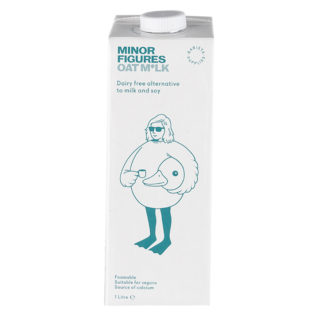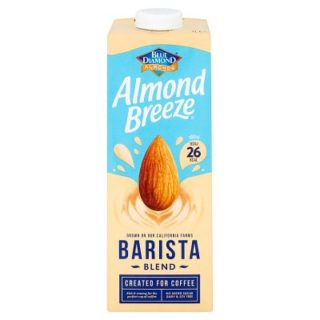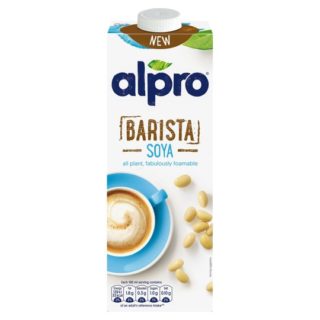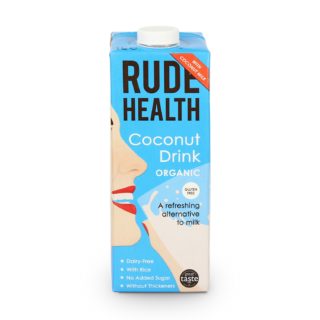Which Non-Dairy Milk Works Best With Your Morning Coffee?

Whether you want to cut down on the amount of lactose in your diet, go full vegan or just try something different in your morning coffee, there are a whole host of reasons to switch out the dairy in your reusable mug the next time you order.
Luckily we’re currently living in the golden age of non-dairy and plant-based milks, all vying for your attention on the barista’s chalkboard. Of course, personal taste is a factor – after all, if you’re the kind of person who leaves all the Bounties in the bottom of the Celebrations box, you’re probably not going to hanker after a coconut latte.
But beyond that, what should you look out for when ordering a coffee with non-dairy or plant-based milk? And are there certain rules for which non-dairy milk works with which coffee?
We asked expert Sam Trevethyen, head of coffee at London cafe-bar chain Grind, to help answer your burning questions. Just remember to let that dairy-free almond milk mocha cool down before you take a sip.
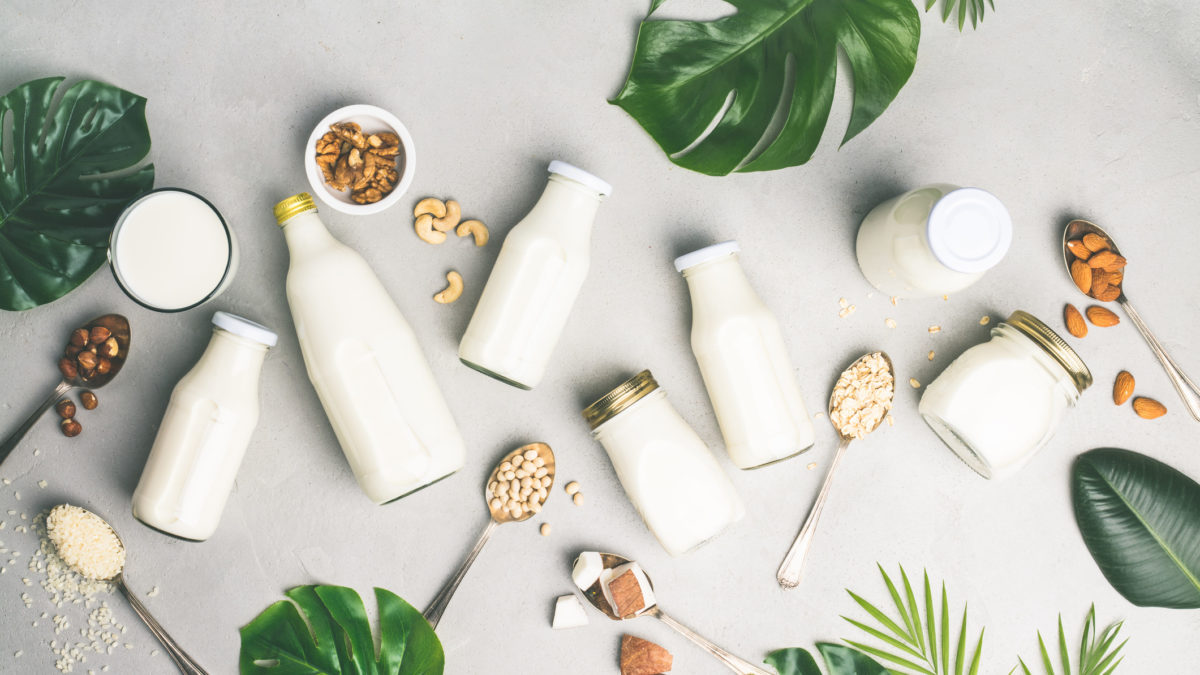
Plant-Based vs. Dairy Milk, When Added to Coffee
“Dairy milk is like a spin doctor when it comes to coffee,” says Trevethyen, “it smooths out any bitterness.”
That natural adeptness at smoothing out the acidity in coffee is down to the structure of dairy milk itself – the main thing to bear in mind if you’re looking for an alternative. The key difference between dairy milk and non-dairy milk is that dairy milk is fat suspended in water, but plant milk isn’t.
While most nuts and plants have naturally occurring fats, when mixed with water they do not form one unified liquid naturally (a bit like oil and vinegar), so historically they tended to split back into their separate parts when added to hot coffee. A notable exception is coconut milk, which is more like a cream in its natural form.
How to Stop Non-Dairy Milk Curdling in Coffee
This is why you’ll see special ‘barista’ nut milks which are made for use in cafes. With these, oils, acidity regulators and stabilisers have been added to the liquid to ensure they don’t split. Sugar is also often added to balance out any bitterness in the raw ingredients (most notably, with soy), something worth noting if you are staying away from dairy for health reasons.
The result is a liquid that fits the flavour profile of coffee much better and will also steam to the correct texture for the foam. So whether you’re making a macchiato on your machine at home or ordering one on the way to your desk, make sure a plant milk specifically designed for coffee professionals is being used.
“After that,” says Trevethyen, “all nut milks are effectively equal and it’s down to personal taste – but there are a few pros and cons for each.”
Here, Trevethyen breaks down what you should think about when ordering coffee with non-dairy and plant-based milk and which he would recommend for use at home.
The Best Non-Dairy and Plant-Based Milks
Oat Milk
Best for: Oat milk is a great all-rounder; it works for all types of coffee and steams nicely.
What to think about: This one’s probably the least environmentally-intensive of the four plant-based milks to produce as oats can be grown pretty much anywhere in the world. So reduce your carbon footprint and look for versions that are produced locally here in the UK. Oat milk also uses the least amount of water in the production process compared to the other three.
Recommended brand: Minor Figures Oat Milk, £12.90 for 6 litres
Almond Milk
Best for: Almonds are naturally bitter, so barista versions of this nut milk tend to be the most heavily sweetened of all the dairy alternatives. Because of this, it also tends to work best with more diluted drinks where you already have sweetness present. So it’s great for iced coffee or any drink that might use a flavoured syrup, such as a mocha.
What to think about: While less than dairy, almond milk takes on far more water to make than either oat or soy. According to the BBC, a single glass of almond milk requires 74 litres (or 130 pints) of water to produce – that’s more than an average shower.
Considering a lot of almonds are grown in California, which is currently in its eighth year of a drought, this isn’t great for the planet. And that’s all before you consider the almond milk is all generally made there, before being flown here to the UK to sit on our supermarket shelves.
Recommended: Blue Diamond Almond Breeze Barista Blend, £1.26 for 1 litre
Soy Milk
Best for: Long drinks. However, here’s a professional tip; even in the hands of the professionals, soy milk has a tendency to split, so add a little cold soy to your hot drink first to test it.
What to think about: When it comes to soy milk, a lot of coffee shops use the market leader Bonsoy. This is produced in Japan and is shipped via Australia, so it has covered a lot of air miles by the time it reaches the UK. Look for alternatives that are produced closer to home then, such as Alpro Barista, which is made in the EU.
Recommended: Alpro Barista Soya, £2.00 for 1 litre
Coconut Milk
Best for: Due to the natural fats and oils present in coconut flesh, its milk steams incredibly well. Therefore coconut milk is best for use in coffees and drinks with a foam, such as a cappuccino.
What to think about: Coconut milk has a tendency to overpower the taste of your coffee. Excellent if you love the taste of coconut. If not, then it’s best avoided.
Recommended: Rude Health Coconut Drink, £2.99 for 1 litre



